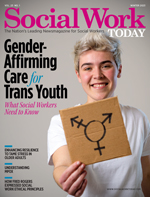|
House Bill 7 (HB 7), an amendment to a current Florida nondiscrimination statute, took effect in Florida on July 1, 2022. It’s described in a press release by the office of Florida Governor Ron DeSantis as intended “to give businesses, employees, children, and families tools to stand up against discrimination and woke indoctrination.” On November 17, 2022, an order was issued by a federal judge to block the law from enforcement in higher education settings in Florida. Nonetheless, Gov. DeSantis has continued his efforts to ban diversity-related programs and content. This has resulted in ongoing reports of changes to course offerings and DEI efforts across the state. The bill includes provisions it claims will prevent discriminatory instruction in the workplace and in public schools. It defines individual freedoms based on the fundamental truth that all individuals are equal before the law and have inalienable rights. This legislation is the first of its kind in the nation to take on both corporate wokeness and critical race theory in schools in one act.” The bill uses terms such as “indoctrination” to convey to the public that it was created in the best interest of the students. However, anyone who teaches and who has read HB 7 knows it’s actually about censorship and erasure. HB 7 highlights eight concepts that instructors should adhere to, and it is this educator’s perspective that the bill itself is a misrepresentation of what actually happens in classrooms. During roughly 15 years’ experience as both a student and a professor of undergraduate and graduate students, I’ve observed that educational objectives and assessments across most, if not all, classes include the nurturing and building of critical thinking skills. Some would argue that it is why we seek to educate ourselves to begin with. We want to learn, improve, or enhance our thinking abilities, which are crucial to our performance in a particular discipline and profession and in our personal lives. For years, I’ve asked class after class to ask critical questions, assess, review evidence, and analyze information. Learning requires psychological flexibility that permits us to integrate data from multiple sources. Critical thinking also asks us to engage in self-reflection and emotional regulation. I recognize that it’s difficult to describe in a brief opinion piece how what’s being stopped in our classes is not what’s written in HB 7. The bill’s impact is the opposite of freedom. It controls our freedom to question, limiting how we can build knowledge from multiple epistemological sources, and censors conversations that can lead to the deepening of our understanding when we contextualize urgent social issues such as racism, heterosexism, ableism, equality, and equity. It’s important to critically analyze some of the language in HB 7 to determine where the misrepresentations of what happens in the classroom are located. The bill states that instruction that “espouses, promotes, advances, inculcates, or compels” student or employee to believe any of the following concepts is considered discrimination. Let’s review a couple of the concepts that, according to HB 7, may not be expressed. That “an individual, by virtue of his or her race, color, sex, or national origin, is inherently racist, sexist, or oppressive, whether consciously or unconsciously.” That “an individual’s moral character or status as either privileged or oppressed is necessarily determined by his or her race, color, sex, or national origin.” That “an individual, by virtue of his or her race, color, sex, or national origin, bears personal responsibility for and must feel guilt, anguish, or other forms of psychological distress because of actions in which the individual played no part, committed in the past by other members of the same race, color, sex, or national origin.” As an educator, I’m invested in teaching and strengthening critical thinking skills that can be used to engage in conflicts, effectively repair ruptures, collaborate to build community, and reduce and eliminate human suffering. I plan to continue teaching as I always have. HB 7 is clearly not promoting freedom; it’s promoting silencing, censorship, and a world of hurt for people already affected by multiple levels of oppression. Critical thinking invites context and nuance into the classroom. It invites complexity and can be messy or overwhelming, but it’s truthful and transparent. Critical thinking skills are needed to simultaneously disrupt and build a new way of living for us all, and HB 7 is not the way to get there. Educators, there is strength in numbers. Consider joining your union, decide together how you will support each other during difficult times. Also, consider joining collective efforts in the community, such as protests, and above all, keep on teaching and truth telling. — Ivania Delgado, PsyD, MS, MSW, resides in Miami Dade County, Florida, and has been in higher education for 15 years. She has a background in social work and clinical psychology and teaches undergraduate and graduate courses. |

 Industry Perspectives: The Only Thing the Stop-Woke Act Will Stop Is Critical Thinking
Industry Perspectives: The Only Thing the Stop-Woke Act Will Stop Is Critical Thinking